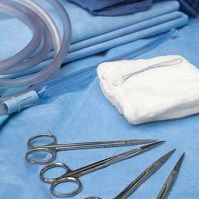Should Medical Devices Be Reused?
A team from Argentina reports that reusing certain medical devices saved 90% of the cost of use of single-use devices without causing complications for patients.

Medical devices can be costly. A team from Hospital Alejandro Posadas, Buenos Aires in Argentina reports on its assessment of the costs of using a new device for each endoscopic retrograde cholangiopancreatography (ERCP). In an abstract due to be reported May 17 at the Digestive Disease Week conference in Washington, DC, David Zalgalsky and colleagues at other institutions in Argentina looked at ERCPs performed during a 3-month period in a hospital were reuse of the devices in customary.
They looked at 5 devices, as well as the cost of reprocessing them. The functionality of a device was addressed as its capability of allowing performing the procedure without technical difficulties.
Each new device was reused until it was considered no longer useful. The team did a cost-benefit analysis of reuse vs. single use devices. In all 144 ERCPS were done during the study.
The cost of reusing the devices and having them reprocessed was $10,943f quarterly while with single-use strategy that cost would have been $126,280, they reported.
That mean that recycling the devices save 90% of the total cost.
“No complications related to the reuse of the medical devices were noted,” the team said.
In conclusion, “In our cohort, the ruse of medical deficiencies in the ERCP unit significantly reduced costs without affecting therapeutic goals,” and did not lead to complications.
The researchers suggested that their strategy could be used “to reduce costs in developing countries.